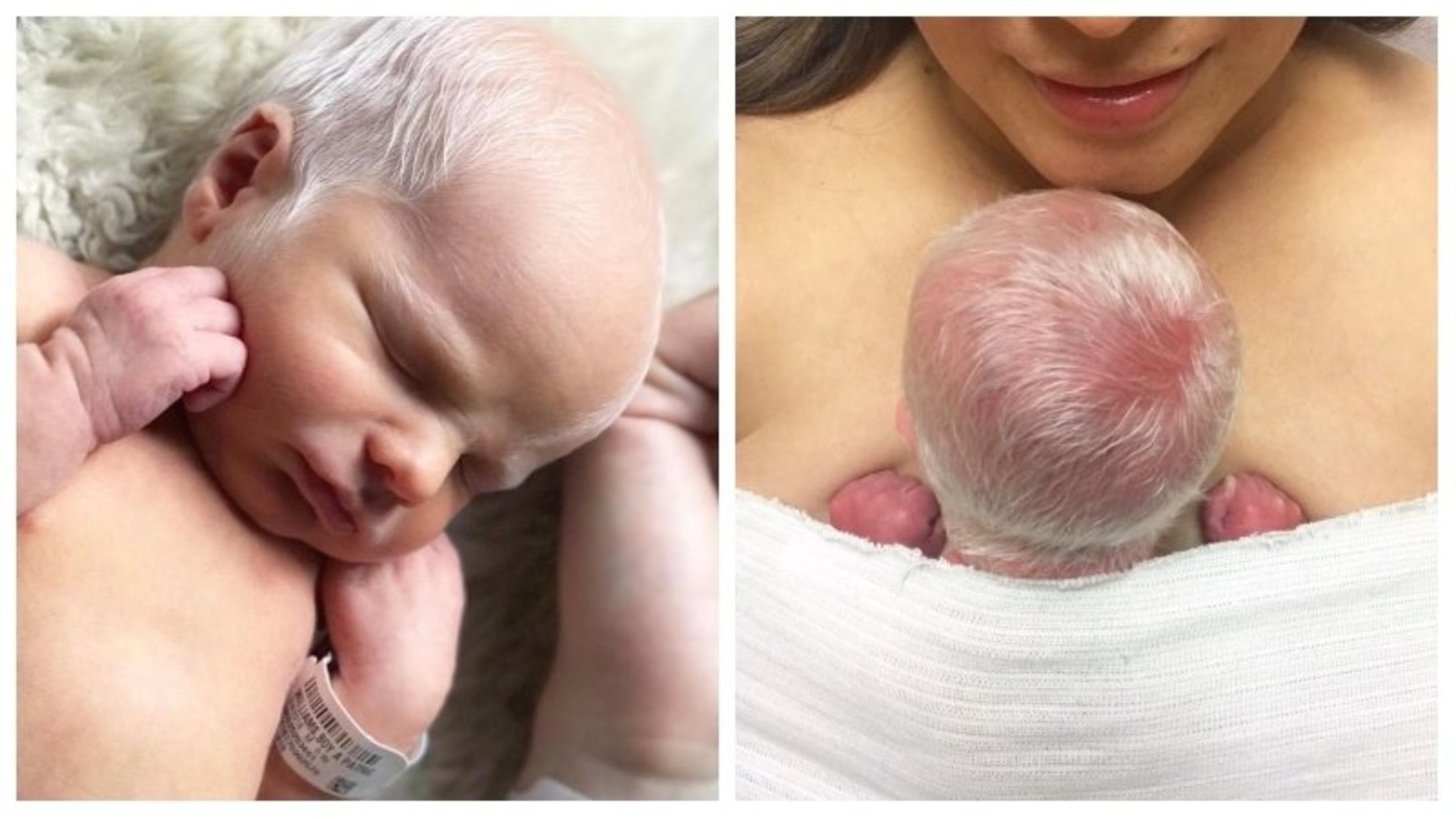
Before our second son was born, we had agreed on naming him Redd, as long as he wasn’t born with red hair. We were thrilled (and relieved) when he came out with a full head of white hair and beautiful blue eyes! At the time, we should’ve realized there was something extra special with him when nurses (who were not our nurses) were coming in to see the “baby with the white hair.” My husband and I were both so happy to show him off. We had both been born with blonde hair (as was my oldest son Gage), so seeing our second son with such blonde hair didn’t strike us as unusual.
The first month we had him home I remember three things as being very unique.
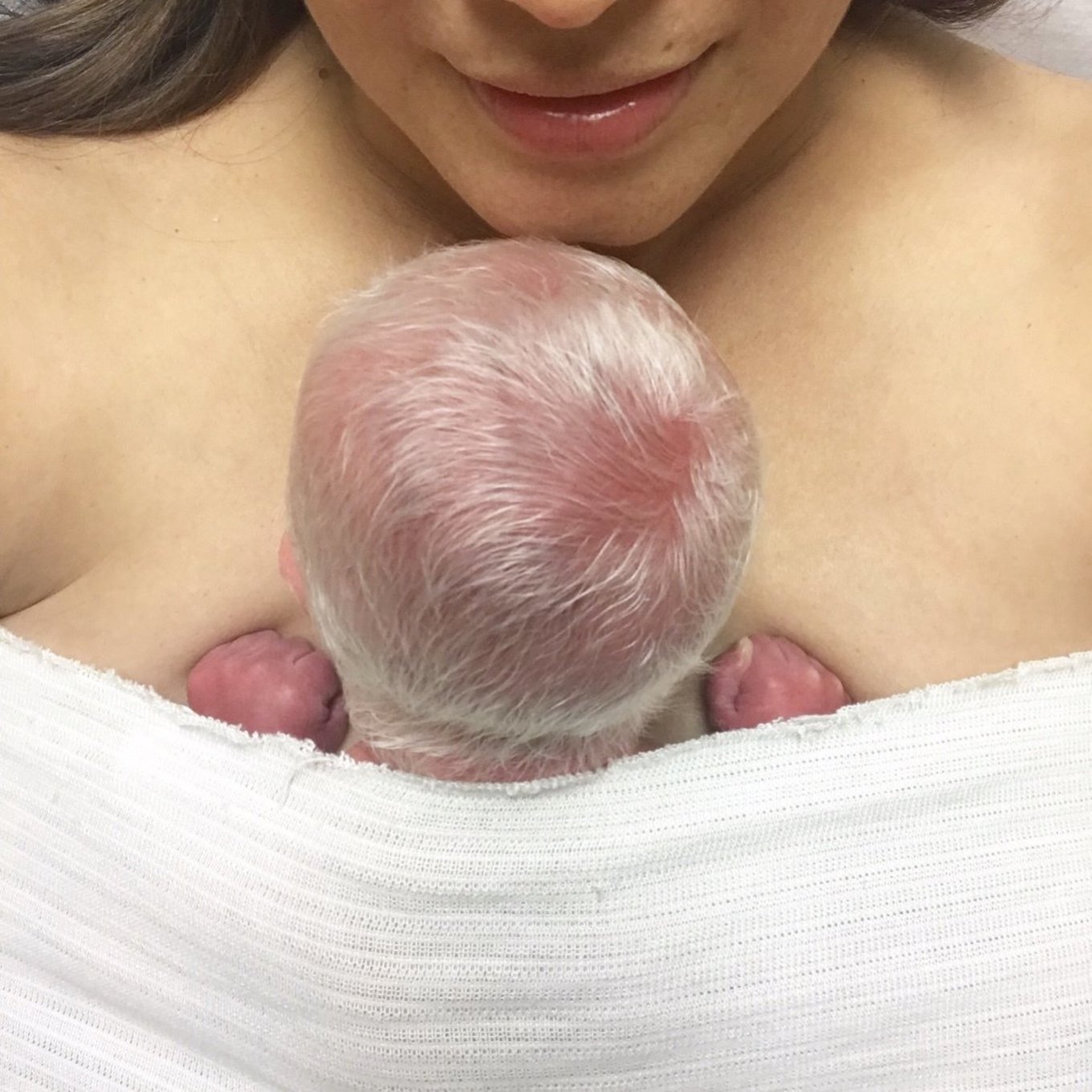
The first was his hair. It was so white that it would sparkle in the sunlight. I pointed it out to my mother in law, who just stared in awe and said, “He’s like a special little fairy.” Second was the way his eyes were always looking up and tracking back and forth in constant motion. I would try and block his view with my hands to see if he would divert his eyes down, but nothing ever worked. I would crack jokes saying that maybe he was seeing ghosts flying back and forth on our ceiling … and my husband always said it looked like he was watching a tennis match. Third was how his blue eyes would sometimes flash red when he was in certain light. This was by far the strangest occurrence but with all of these things, I figured it was because he was a newborn and that he would eventually grow out of them.
When Redd was almost 2 months old, my husband and I were eating breakfast and I asked him to Google tracking of the eyes in newborns.
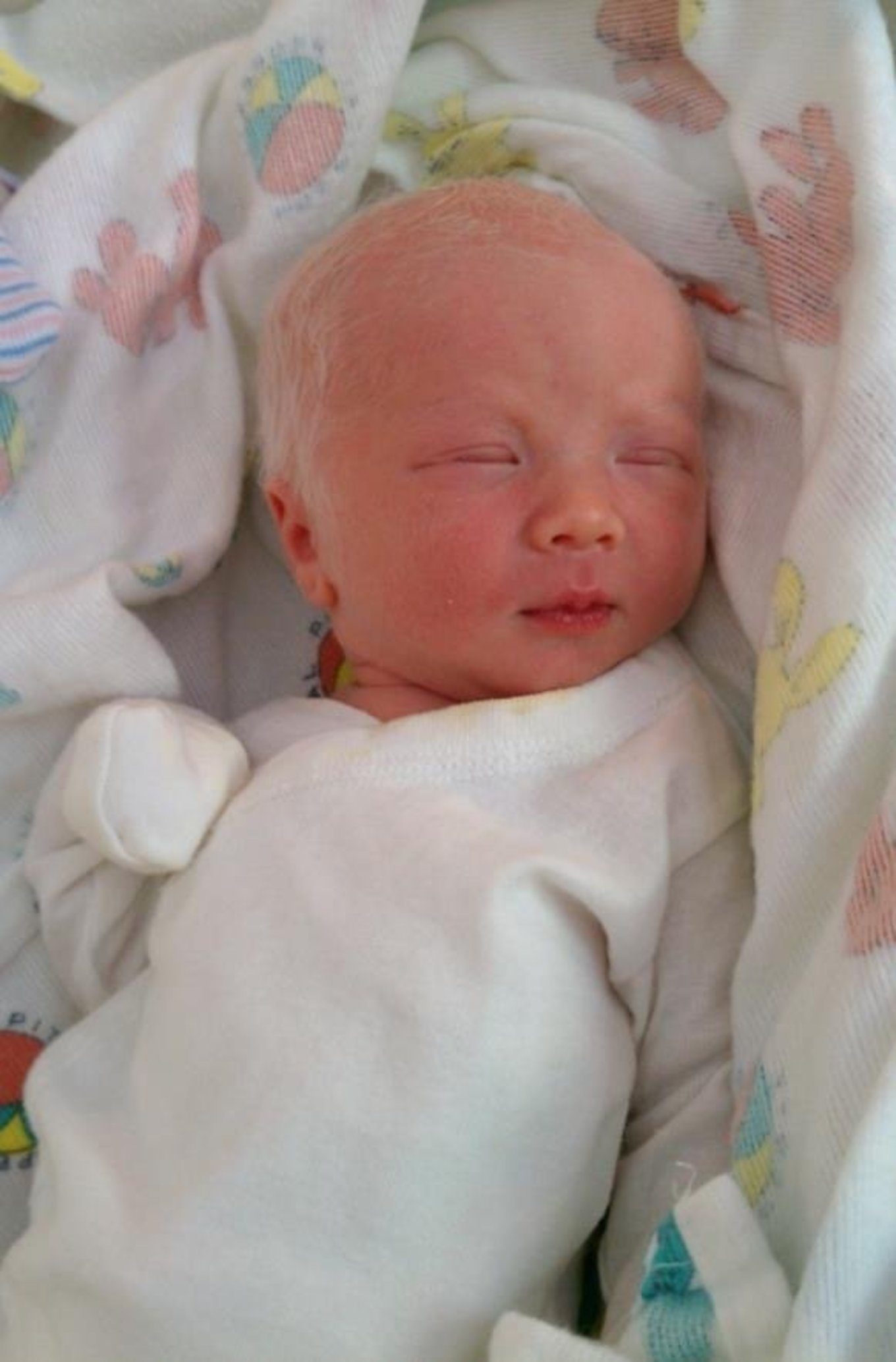
The first thing he read was that it was a common trait in infants with albinism. At the time, I had never heard the word “albinism” and asked what it meant. I remember him looking at Redd and saying, “White hair, pale skin, tracking of the eyes … he’s an albino!” My immediate response was “No he’s not! Don’t they have red eyes?” We then spent the next few hours watching YouTube videos on albinism and reading articles to gain a better understanding of what it was. Still in disbelief, I called to make an appointment with our pediatrician.
When we met with her, the first thing she said was 'How did I not catch this!'
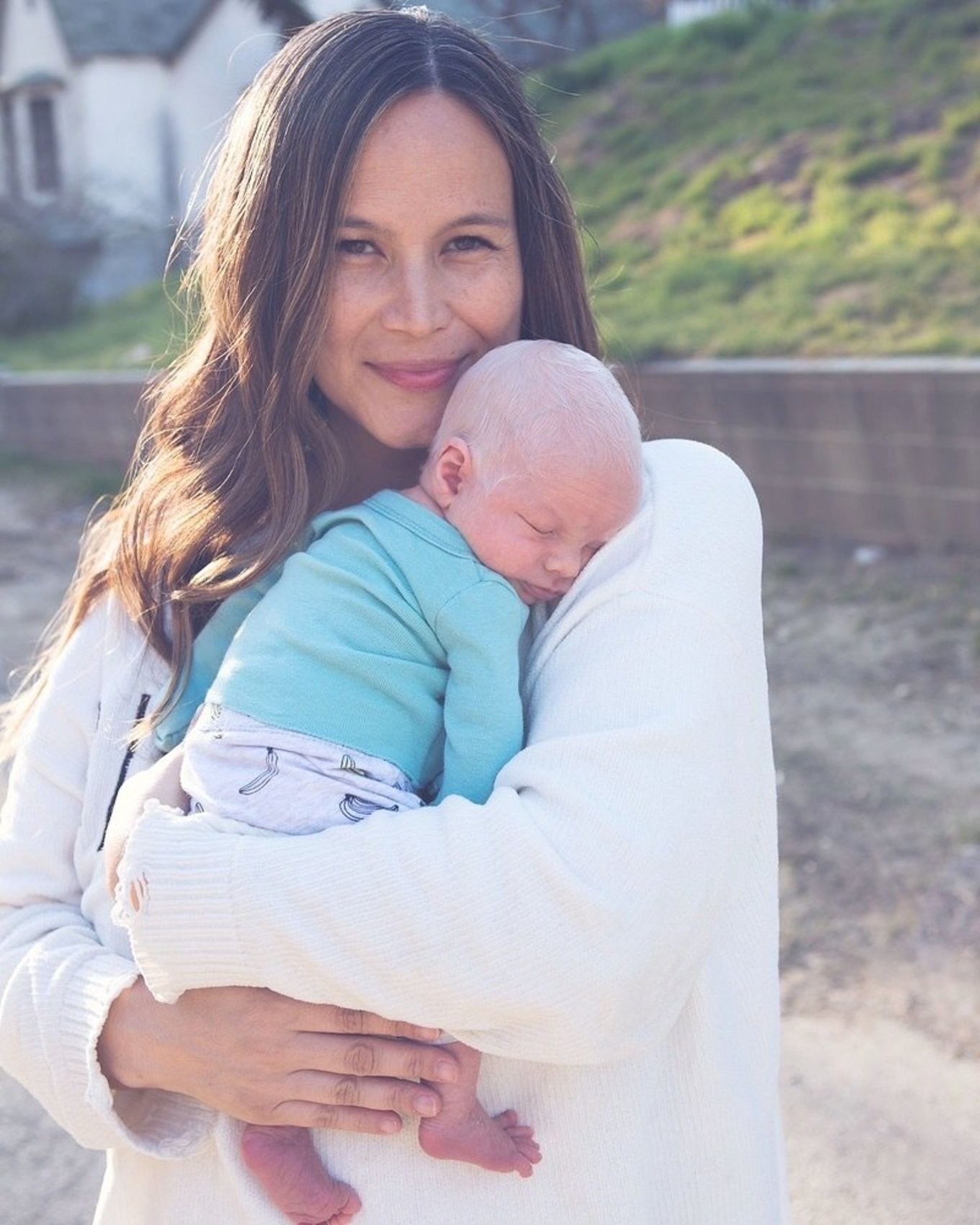
We realized that his first few appointments he had refused to open his eyes (which makes sense because his eyes are extremely sensitive to light). So she had never seen his eyes tracking back and forth. She immediately scheduled us to meet with a genetics specialist and an optometrist.
When we met with the genetics specialist, he walked in and took one look at Redd and said right away he most likely has OCA1 (Oculocutaneous Albinism Type 1). He told us there are many various forms of albinism, but that OCA1 is the most common in which the body produces little to no pigment in skin, hair, and eyes. He said that white eyelashes and white eyebrows are the easiest way to tell the difference between someone with albinism and someone who is blonde. Being clueless as to how ignorant I sounded, I decided to ask, "But aren't they supposed to have red eyes?"
The genetics specialist laughed and said that the only things he knew of with red eyes were rats.
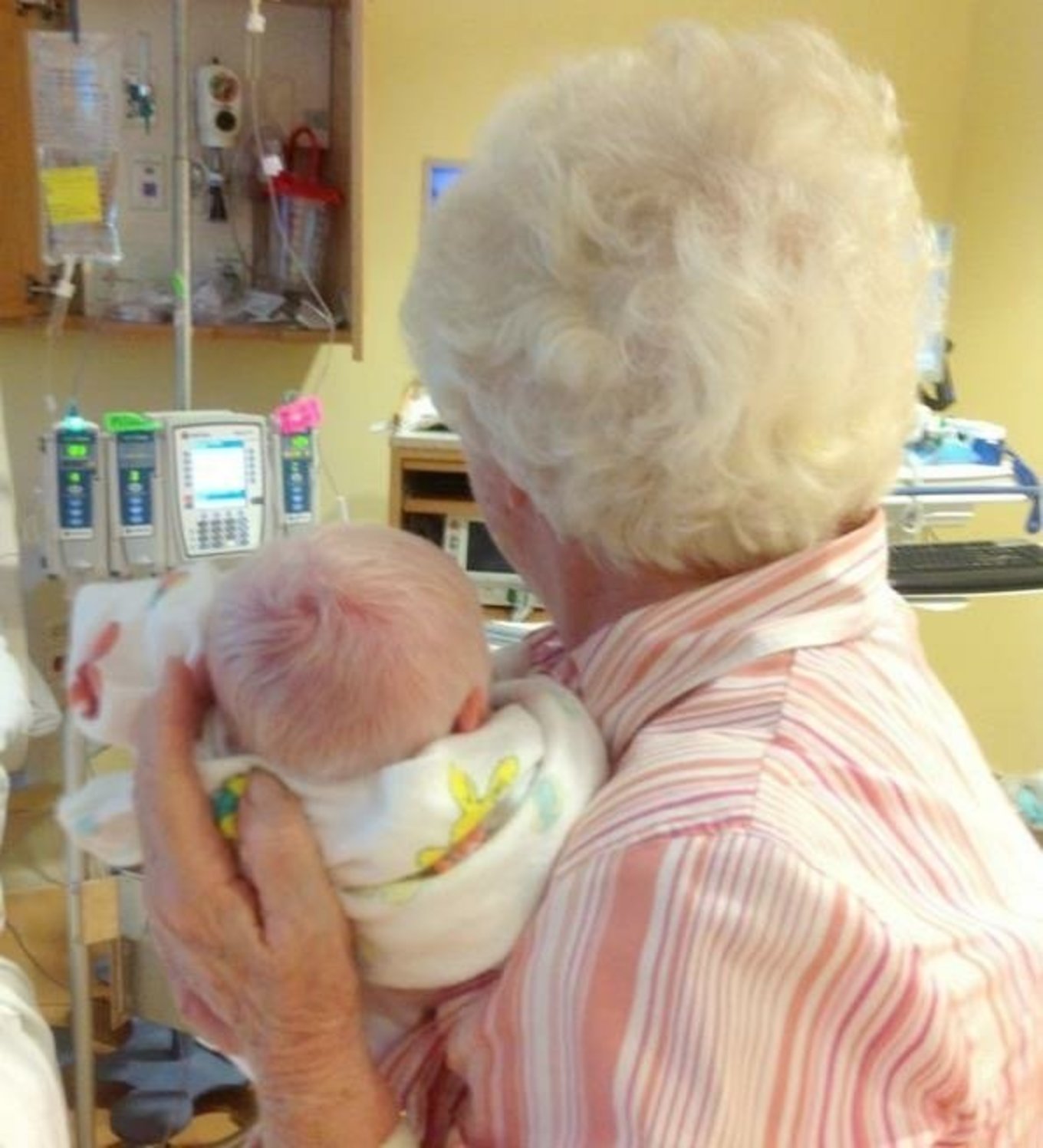
He then explained to us that albinism is a recessive gene and that both my husband and I must be carriers of the gene and asked if either of us had any relatives with albinism. The first person I thought of was my grandmother who raised me. She was part Native American and had been born and raised on an Indian reservation. She was also very fair-skinned, blue-eyed and had platinum blonde hair her entire life. She was almost 90 years old. I called her up and asked “Gram, are you an albino?” She laughed and said, “Doctors have been telling me that my whole life, but I’m not!”
When I took Redd in to see his optometrist, she confirmed that he had iris transillumination (the reason his eyes would sometimes reflect red in certain light), nystagmus (the tracking of the eyes back and forth) and strabismus (one eye was cross eyed). I was completely unprepared when she told me that Redd would most likely be legally blind and unable to get his drivers license. I felt as though I had just been struck in the stomach with a bowling ball. I remember crying all the way out to the parking lot and the entire drive home.
Our first year with Redd, we quickly realized how much attention he drew when we were out in public.
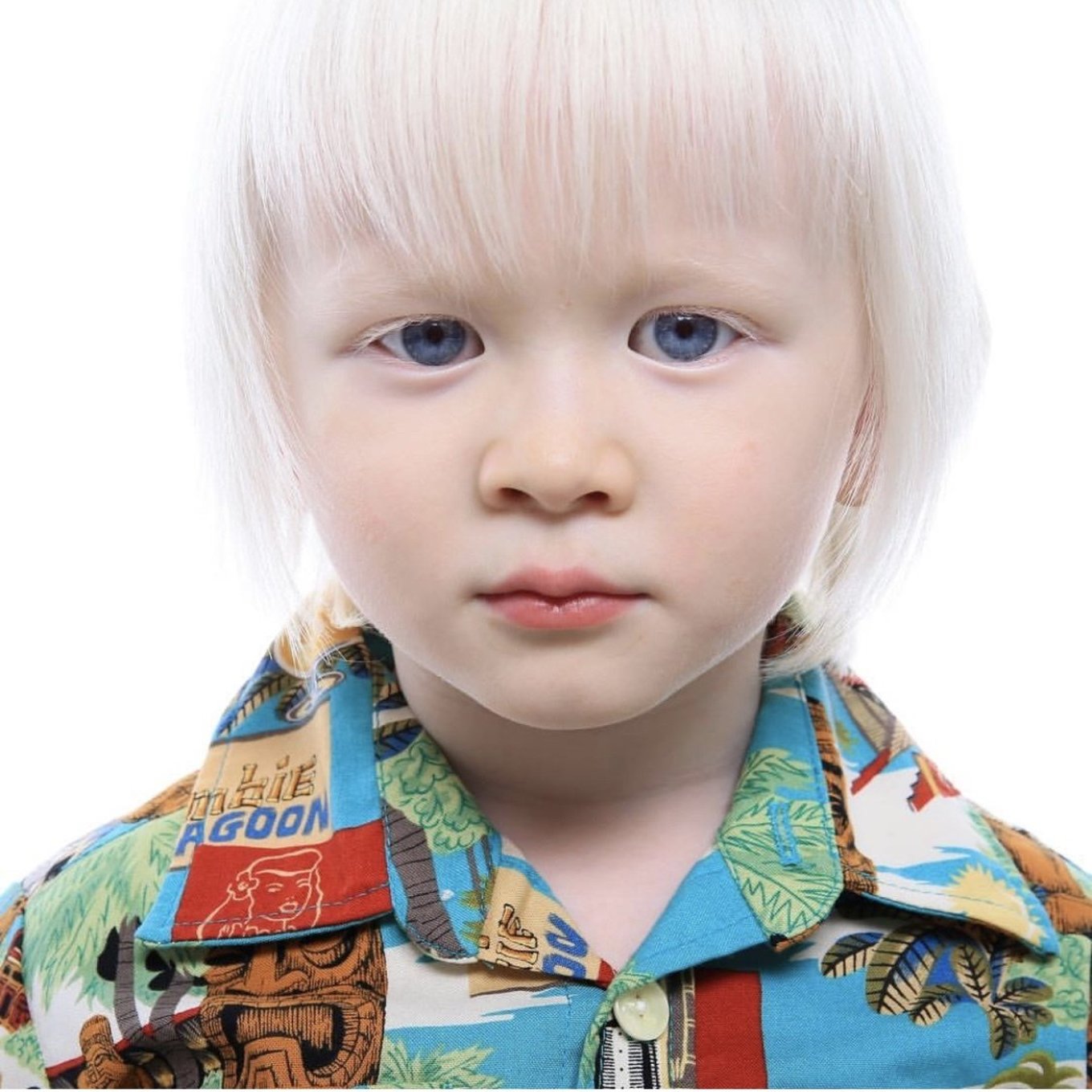
We got stopped everywhere we went by people curious about his white hair. Many times our son was the first albino he or she had ever seen so they'd ask more questions or would want to touch his hair.
Because of his sensitivity to sunlight, we went to a lot of beaches and playgrounds at dawn or sundown so he could play comfortably. This became fun for us because we were usually the only ones there.
After Redd, we knew we wanted to have more children and knew that it was a 25% chance they could also be born with albinism.
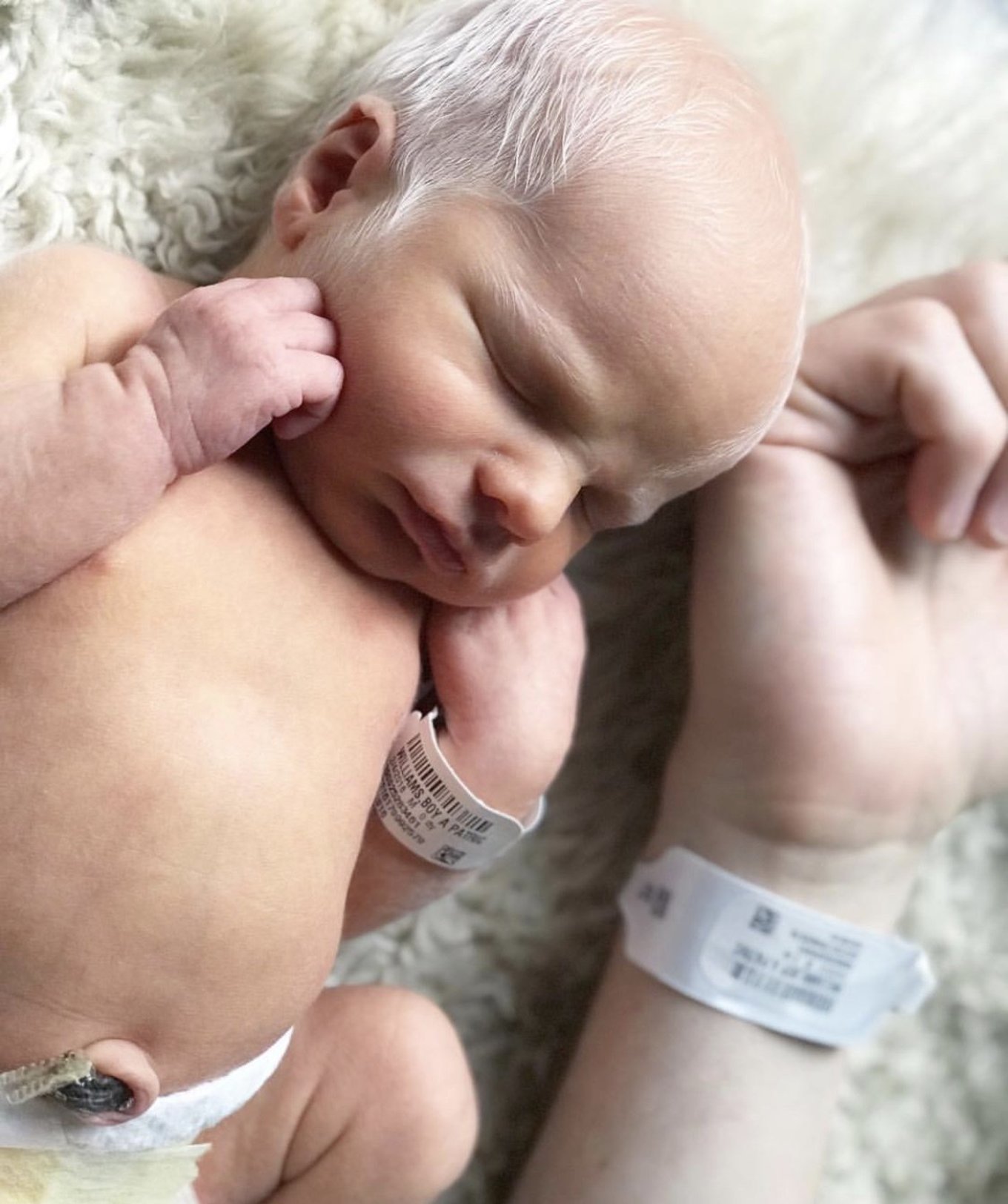
This made it really exciting to experience their births. When I gave birth to our third son, Wolfgang, we could tell right away when we saw his olive skin and light brown hair that he was not going to share the same unique features as his brother.
When I went in to labor with my fourth, Rockwell, there was a point just before I pushed him out, where the doctor was holding a flashlight to get a look at Rockwell’s head. Next to him was my husband, and behind him were two male associates … all four men were staring up my vagina with a flashlight when the doctor said, “Whoa! He has some really blonde hair.” AND I JUST KNEW. My husband smiled and said, “He’s an albino.” I squealed, my mother-in-law cried, and when we called my 91-year-old grandmother to tell her the news she cried out “Oh no!” and made us all laugh.
Adjusting to the needs of albinism took some time (like stocking up on sunglasses, sunscreen, and hats), but once we got in to a routine, it just became a very normal part of our life.
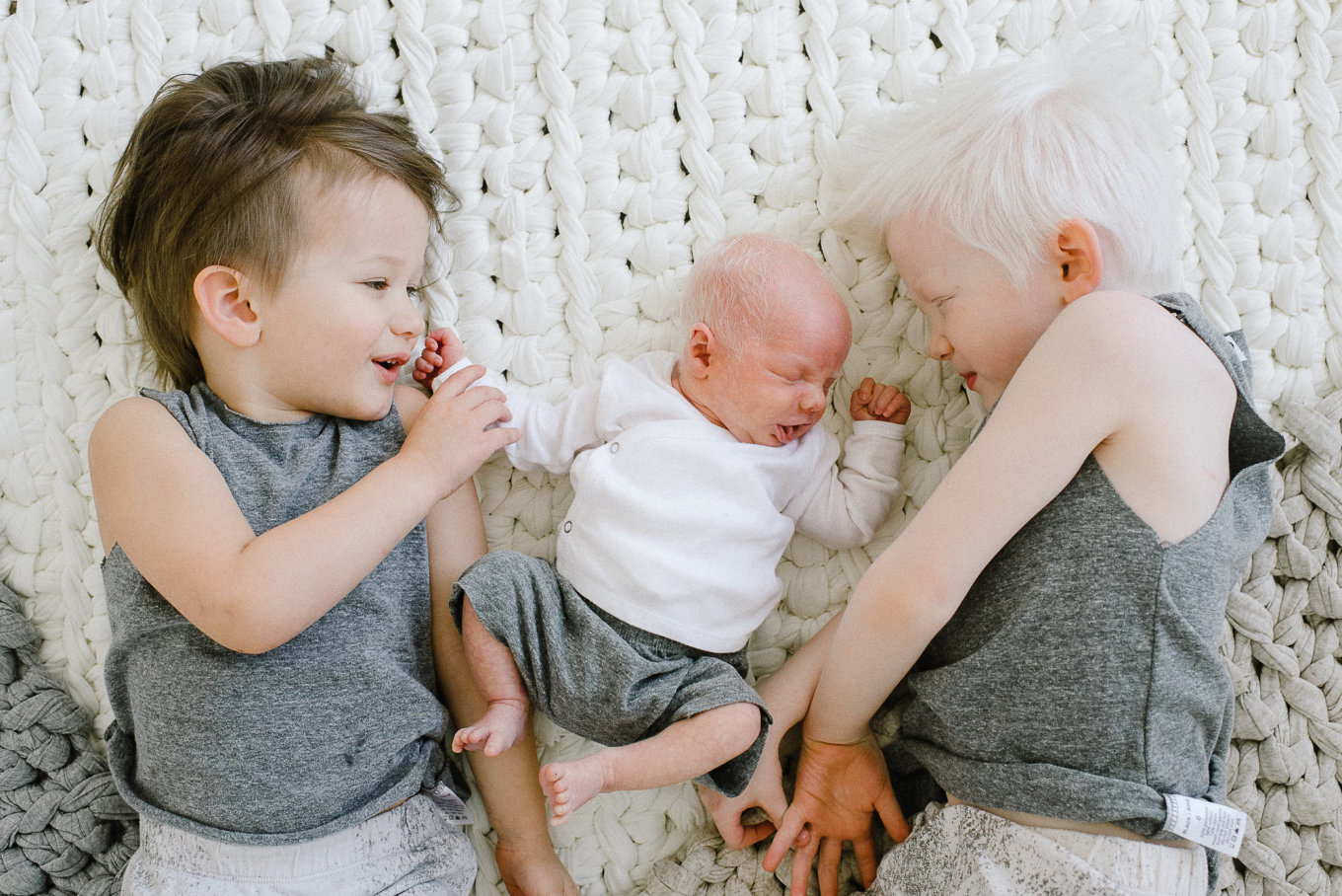
Adjusting to the reactions of others and their comments is still a work in progress and most likely will continue to be throughout our lives. My husband and I created a silly rule that if a stranger makes more than three comments about our son's hair, then we will bring up the fact that they have albinism. We want to be good examples to our children on how to spread awareness about albinism in a positive light and not to be embarrassed or ashamed to discuss it. By keeping a positive, open dialect, we believe this is significant in helping them understand how to be vocal and advocate their needs while navigating not only through school but also through life.
If you know my boys at all, you know they are very rowdy and active and Redd definitely knows how to keep up and hold his own.
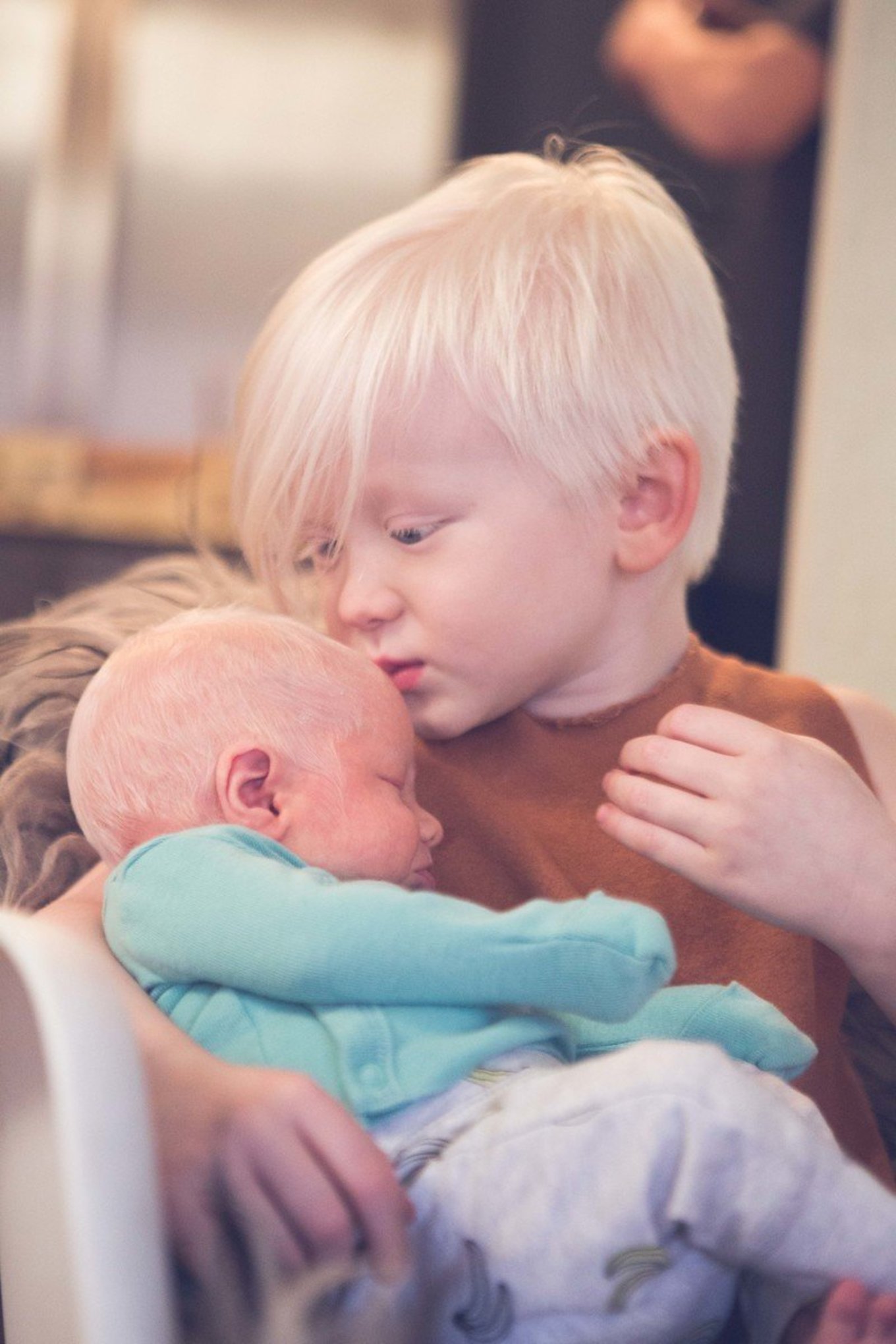
We have tried our best to raise Redd to be just like any of our other boys (and we will raise Rockwell to be the same), not limiting him in any way or discouraging him from things that would be a little frightening. Sometimes I still catch myself wanting to hold Redd back or jump in and stop him from doing something dangerous, but then my husband gives me a gentle reminder that he'll be all right … and I see his little face full of determination and grit … and wanting so much to be like his brothers, that I have to remember to take a step back (within a safe arm's reach) and let him go for it.
I think the best thing any parent can give their children is confidence.
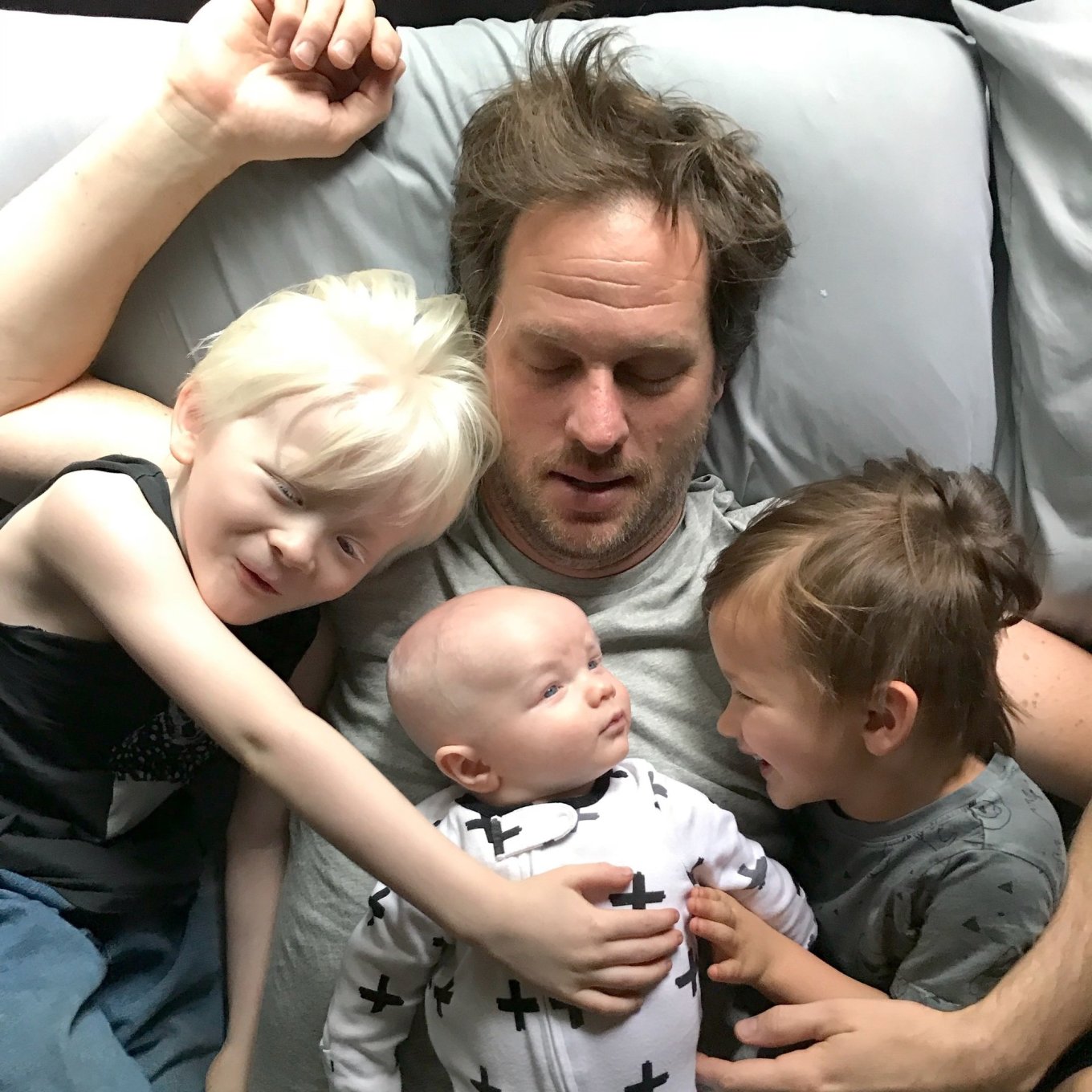
If you have a child who looks a little different, or has special needs, or sometimes just doesn't fit in with the crowd … it's our duty to provide them with tools in order to withstand how cruel the world can be. We have already dealt with our fair share of kids being unkind to Redd while at a playground and we know it will continue to happen throughout his childhood (and possibly adulthood). Kids can be so honest in such an innocent, yet totally hurtful way and we are trying our best to use those opportunities to educate them about albinism and to explain why Redd's eyes move back and forth and why his hair is so white.
I've always said the best defense we can give to Redd is to teach him how to be confident and give him the right things to say when he hears people making fun of him. My husband has always said the next best defense is to give him Kung-Fu lessons.
This story was written by Patricia Williams (@snagdip) and a portion of it originally appeared on Fashion Mamas. It was reprinted with permission.



